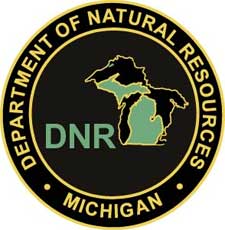

Michigan –-(Ammoland.com)- The Michigan Department of Natural Resources is making it easier for citizens to report fish and game violations through the convenience of text messaging.
The Report All Poaching (RAP) hotline (800-292-7800) now accepts text messages in addition to telephone calls. Text messages may include photos. The RAP hotline is a toll-free, 24-hour, seven-days-a-week number that enables citizens to report violations of fish and game laws, as well as other natural resource-related laws. It is operated by DNR’s Law Enforcement Division. The DNR also offers a web-based reporting form.
“Poaching is a crime against every Michigan resident. Fish and game are shared resources that must be respected and properly managed,” said Gary Hagler, DNR Law Enforcement Division chief.. “The addition of texting to the RAP system makes it more convenient for the public to do its part in protecting our resources. It also provides law enforcement with immediate and visual information, which are valuable to officers conducting an investigation. This is a great way to harness technology for the benefit of our entire state.”
Upon receiving a text, the RAP system immediately replies with a message stating that a dispatcher soon will be in touch with the complainant. A link to the RAP webpage is included. A dispatcher will begin a conversation with the complainant via text, collecting information just as dispatchers would do during a phone call. Complainants wanting to speak to a dispatcher can request a return phone call or call the RAP hotline.
RAP dispatchers are highly trained professionals. They operate with state-of-the-art technology and can immediately contact DNR conservation officers in the field. This ability to quickly collect and relay information has led to the arrest and prosecution of numerous violators.
The Report All Poaching system was created by legislation in 1980 to address the public’s concerns about the detrimental effects of poaching. The system has paid off and remains a critical tool in safeguarding Michigan’s natural resources.
In addition to protecting the personal information of complainants, RAP provides for monetary awards for information leading to the arrest and conviction of poachers.
Michigan conservation officers are fully commissioned state peace officers who provide natural resources protection, ensure recreational safety and protect citizens by providing general law enforcement duties and lifesaving operations in the communities they serve. Learn more about Michigan conservation officers at www.michigan.gov/conservationofficers.
